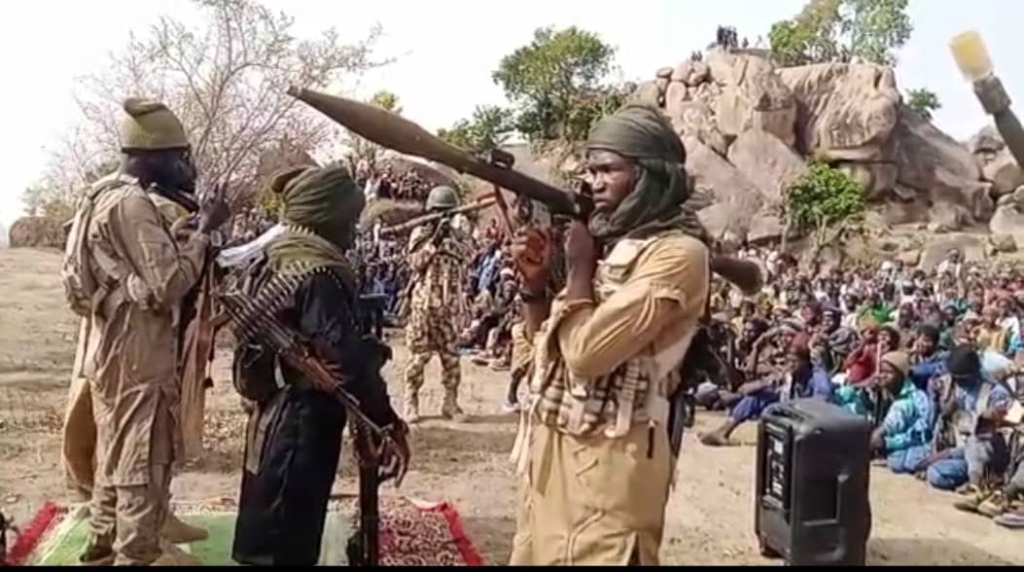
Terror attacks: Army General explains sudden resurgence,
•Suggests ways to overcome them
Dr Joshua Bolarinwa, an Associate Professor and Head of the Division of Security and Strategic Studies at the Nigerian Institute of International Affairs, (NII), had argued that the withdrawal of Niger from the MNJTF was not surprising. In a tweet on the implications of Niger’s withdrawal from the multinational joint task force, Dr Bolarinwa said, “The MNJTF has significantly broadened its operations since its establishment in 1998 and subsequent re-activation in 2015 in order to address the security risks posed by the Boko Haram insurgency in the Lake Chad Basin.
With a strengthened force of approximately 10,000 soldiers, the coalition’s mandate was to eradicate the Boko Haram extremist group, which has conducted several violent campaigns against Nigeria and the entire Lake Chad Basin. However, as a result of the MNJTF’s vigorous operations and their widespread military offensives, the menace of Boko Haram drastically reduced. “The MNJTF conducted its inaugural significant operation in 2016. Notwithstanding significant obstacles, it achieved substantial progress in combating the Boko Haram insurgency. With coordinated military actions, it liberated territories and hostages and successfully neutralised a significant number of Boko Haram insurgents, retrieved weapons, and dismantled several Boko Haram training camps. The efficacy of the MNJTF was acknowledged by the United Nations Department for Political Affairs for its successes in curbing the insurgency in the Lake Chad Basin.
“The withdrawal of Niger from the MNJTF was not surprising, given the coup that took place on 26 July 2023. The Economic Community of West African States (ECOWAS) suspended and placed several sanctions on Niger. It is widely believed that, due to the ECOWAS sanctions, demands, conditions and the threat of using force on the junta if diplomacy fails, might have led to the withdrawal of its soldiers from the borders.
However, the head of the Nigerien military junta, General Abdourahamane Tchiani refuted the withdrawal from MNJTF by stating, that “Niger is still a member of MNJTF”. Niger is landlocked and shares boundaries with seven countries-Algeria to the north (951 km), Libya to the northeast (342 km), Chad to the east (1,196 km), Benin to the southwest (277 km), Burkina Faso to the south (622 km), Mali to the west (838 km), Nigeria to the south (1,608 km). The Nigeria-Niger border is the longest, which fosters interactions and interdependence in trade, security, and cultural exchanges.
The withdrawal of Niger from the MNJTF will create a void that may increase the level of terrorist and insurgency activity
“The absence of military patrols at the borders may provide Boko Haram and other insurgent groups, especially ISWAP with additional incentives to escalate their attacks. In fact, the absence of Niger will create a void, leading to an increase in attacks on the outskirts of Lake Chad and the influx of a substantial number of weapons and militants from the Sahel and ISIS, based in North Africa.
If it contributes to a resurgence of terrorism and insurgency, by implication it may result in a big setback on the earlier successes recorded by the MNJTF. Niger has been a significant participant in the ongoing counter-terrorism and counter-insurgency endeavours at both regional and global scales, which should be encouraged to continue. In a recent report, several areas in the region, particularly Gaidam in Yobe State, Mallam Fatori, and Damasak near Lake Chad, are experiencing a continuous and consistent influx of foreign combatants due to porous and unguarded borders as a result of Niger withdrawing its soldiers from those points.
“The withdrawal of Niger from the MNJTF, creates a void that will increase the likelihood of heightened terrorism and insurgency, undermines the accomplishments of the MNJTF, and emphasises the necessity of ongoing regional cooperation in response to shifting security challenges. A great setback to the current counter-terrorism and counterinsurgency endeavours. It will not only undermine the collective security arrangement, but also Niger’s internal security, the security of its neighbours and the entire Sahel. Thus, it is crucial to enhance diplomatic efforts, bolster regional collaboration, and explore opportunities for Niger’s reintegration for cohesion and effective response to the security challenges.
The post Terror attacks: Army General explains sudden resurgence appeared first on Vanguard News.
,
“The MNJTF has significantly broadened its operations since its establishment in 1998 and subsequent re-activation in 2015 in order to address the security risks posed by the Boko Haram insurgency in the Lake Chad Basin.
The post Terror attacks: Army General explains sudden resurgence appeared first on Vanguard News.
, , Idowu Bankole, {authorlink},, , Vanguard News, May 10, 2025, 3:09 am











